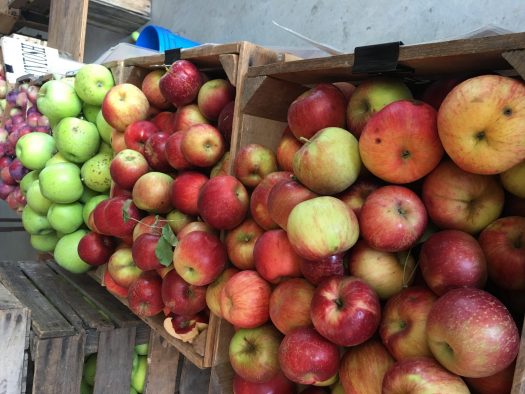By Sarah Pittman, Senior Dietetics student
One of the benefits of eating a plant-based diet is related to cardiovascular health. Studies have shown that eating a plant-based diet can reduce overall cholesterol and LDL levels. But studies have shown that a plant-based diet may not have any effect on increasing HDL or lowering triglyceride levels.
What helps lower LDL and overall cholesterol the most? Phytosterols. Phytosterols help to decrease the absorption of cholesterol. The recommended intake of phytosterols is 2 g/day, (Cabral, C. E., Klein, M. R. S. T., 2017).
Foods that are high in phytosterols include:
- Vegetable oils (wheat germ oil, rice bran oil, corn oil and canola oil)
- Whole grains
- Bran (rice bran, corn bran, wheat bran)
- Flour (soy flour, rye flour, whole wheat flour)
- Soybeans (Satija, A., Bhupathiraju, S., Spiegelman, D., Chiuve, S., Manson, J., Willett, W., & Rexrode, K., 2017).
According to “Phytosterols-deficient and high-phytosterol diets developed for controlled feeding studies”, while fruits and vegetables are relatively low in phytosterols by weight, they enhance the phytosterol content of a high-phytosterol diet due to their relative abundance.
HDL and a plant-based diet:
“The effect of a low-fat, plant-based lifestyle intervention (CHIP) on serum HDL levels and the implications for metabolic syndrome status – a cohort study”, looked at a lifestyle intervention where they took roughly 5,000 individuals to participate in a low-fat, plant-based eating pattern for 30 days. In those 30 days, they found that HDL actually decreased 8.7%.
According to, “Association between plant-based diets and plasma lipids: a systematic review and meta-analysis” they also found from looking at 8,385 studies that included 30 observational studies and 19 clinical trials that consumption of vegetarian diets did, in fact, decrease total cholesterol, LDL cholesterol and HDL cholesterol.
All in all, a plant-based diet can be very beneficial for lowering total cholesterol and LDL cholesterol although studies have shown that it may not be beneficial for HDL and triglyceride levels.
What advice do you have for better cholesterol levels? We would love to hear from you!
References:
Yokoyama, Y. , Levin, S. , & Barnard, N. (2017). Association between plant-based diets and plasma lipids: a systematic review and meta-analysis. Nutrition Reviews, 75(9), 683-698. doi:10.1093/nutrit/nux030
Satija, A., Bhupathiraju, S., Spiegelman, D., Chiuve, S., Manson, J., Willett, W., & … Rexrode, K. (2017). Healthful and Unhealthful Plant-Based Diets and the Risk of Coronary Heart Disease in U.S. Adults. Journal Of The American College Of Cardiology, 70(4), 411-422. doi:10.1016/j.jacc.2017.05.047
Madigan, M. (2017). The Role of Plant-Based Nutrition in Preventing Heart Disease. University Of Toronto Medical Journal, 94(3), 17-24.
Cabral, C. E., Klein, M. R. S. T. (2017). Phytosterols in the Treatment of Hypercholesterolemia and Prevention of Cardiovascular Diseases. Arquivos brasileiros de cardiologia, 109(5), 475-482.
Susan B. Racette, Ph.D., Catherine Anderson Spearie, M.H.S., R.D., Katherine M. Phillips, Ph.D., Xiaobo Lin, Ph.D., Lina Ma, M.S., and Richard E. Ostlund, Jr., M.D. Phytosterol-deficient and high-phytosterol diets developed for controlled feeding studies.
Kent, L., Morton, D., Rankin, P., Ward, E., Grant, R., Gobble, J., & Diehl, H. (2013). The effect of a low-fat, plant-based lifestyle intervention (CHIP) on serum HDL levels and the implications for metabolic syndrome status – a cohort study. Nutrition & Metabolism, 10, 58. http://doi.org/10.1186/1743-7075-10-58
This blog was posted by Robin Allen, a member of OneOp (MFLN) Nutrition and Wellness team that aims to support the development of professionals working with military families. Find out more about the OneOp Nutrition and Wellness concentration on our website on Facebook, on Twitter, and LinkedIn.















